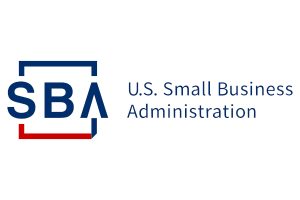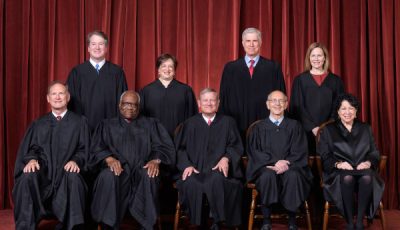SBA Lawsuit: Govt., Adult Plaintiffs Spar Over Standards, Definitions
 FLINT, Mich. – There has been a recent flurry of activity in the lawsuit filed against the U.S. Small Business Administration (SBA) by DV Diamond Club of Flint earlier this month, with additional plaintiffs joining the complaint, the government asserting the lawsuit’s claims lack merit and the plaintiffs firing back at the government’s arguments.
FLINT, Mich. – There has been a recent flurry of activity in the lawsuit filed against the U.S. Small Business Administration (SBA) by DV Diamond Club of Flint earlier this month, with additional plaintiffs joining the complaint, the government asserting the lawsuit’s claims lack merit and the plaintiffs firing back at the government’s arguments.
An amended complaint filed on April 17 has 40 additional plaintiffs, including the Spearmint Rhino Companies Worldwide, JCB of Gainesville Inc. and Rogue Gentlemen’s Club, to name just a few.
The case has also seen the government’s first response, in the form of a motion in opposition to the plaintiffs’ emergency order for a temporary restraining order and preliminary injunction.
In its brief, the government asserts that the plaintiffs’ case “entirely on the notion that the Government is constitutionally obligated to subsidize their speech” saying that this notion “couldn’t be more wrong.”
“As the Supreme Court held in Regan v. Taxation With Representation of Washington… and has repeatedly reaffirmed ever since, the Government is not required to remove obstacles in the path of a person’s exercise of free speech that are not of the Government’s own creation,” the government asserts in its brief (internal citations omitted). “Therefore, as also held in Regan, the First Amendment does not compel the Government to subsidize speech of any kind, on any topic, that the Government does not wish to promote.”
“These are the principles that control this case, and they require that Plaintiffs’ motion for a preliminary injunction be denied, just as the District Court for the District of Columbia denied a similar motion, by political consultants and lobbyists, only days ago,” the government adds.
The government further contends that the plaintiffs’ motions should be denied because “none of their constitutional claims is likely to succeed on the merits.”
“As the Supreme Court has explained, government does not ban, penalize or otherwise infringe on speech simply by deciding not to fund it, and is entitled to make content-based judgments about the speech it will and will not fund so long (as is the case here) it does not engage in invidious viewpoint discrimination, or attempt to suppress the expression of particular ideas,” the government argues, adding that the SBA policies do not “violate the doctrine of unconstitutional conditions, constitutional standards concerning obscenity, the rule against prior restraints, or the vagueness doctrine, because it merely prohibits the use of SBA loans to fund private speech that the Government does not wish to subsidize, while leaving businesses of a prurient sexual nature entirely free to use their own financial resources to engage in any speech they wish.”
The brief argues that the government “’is not required by the First Amendment to subsidize lobbying’” (as held in Regan) or any other form of speech, and does not restrict or penalize speech simply because it has ‘chosen not to pay for [it].’”
“This bedrock principle ends this case,” the government flatly asserts in its brief. “As Plaintiffs acknowledge, the economic obstacles to the exercise of their First Amendment freedoms were placed in their path by the COVID-19 pandemic and their State governments’ efforts to contain it… those obstacles are not of the Federal Government’s creation. Thus, the Government has no constitutional obligation to remove them.”
The government also asserts that “the Supreme Court has held time and again that the Government does not penalize, prohibit, restrict, or otherwise infringe on speech simply because it chooses not to pay for it.”
“The controlling principle here, articulated many times by the Supreme Court, is that the ‘government can make content-based distinctions when it subsidizes speech’ as opposed to regulating speech,” the brief continues.
The government contends that the “SBA’s policy against subsidizing loans to businesses of a prurient sexual nature is entirely viewpoint-neutral, and singles out no particular ideas for disfavorable treatment.”
“The rule prohibits federally subsidized loans to these businesses without regard to any ideas they wish to convey, promote, or oppose through the displays depictions, or performances they present, or the products or services they sell,” the government adds in the brief.
In response, the plaintiffs assert that the government’s argument is undermined by some of the very cases the government cited in its brief.
Citing passages from the government’s brief which state that “even though content-based, the Government’s funding choices will be upheld unless they are shown to be ‘the product of invidious viewpoint discrimination,’ or ‘aim[ed] at the suppression of dangerous ideas,’” the plaintiffs argue that the government itself has already fully explained to the court “13 C.F.R. §120.110(p) is unconstitutional as a viewpoint-based infringement on Plaintiffs’ speech rights.”
They also zero in on the vagueness of the term “prurient” in this context – vagueness the government doesn’t really dispute, but that it says isn’t a problem in this context, because the statute at issue doesn’t regulate speech, but government subsidies.
As the plaintiffs argue in their response, the vagueness also informs (or fails to inform) the choices made by the SBA and by lenders, who represent a crucial go-between for the SBA and the businesses applying for disaster relief funds.
“This necessarily means that an SBA administrator or bank official, both of whom likely have little-to-no training on what ‘prurient’ means, must decide which presentations are loan-qualified and which are not,” the plaintiffs argue. “It also means that the SBA has taken one side of the debate when it comes to the presentation of erotic entertainment. The SBA freely funds companies that advocate against the message of eroticism while barring only those which favor that message and viewpoint.”
The plaintiffs further assert that the government’s brief “never comes to grips with this vital issue.”
“At best, its argument amounts to no more than a tautology: the phrase ‘prurient sexual nature’ does not render the Regulations viewpoint-based because it does not,” the plaintiffs assert, needling the government over the circularity of its reasoning.
The plaintiffs go on to observe that the precise language in the government’s brief states “The SBA’s policy against subsidizing loans to businesses of a prurient sexual nature is entirely viewpoint-neutral, and singles out no particular ideas for disfavorable treatment. The rule prohibits federally subsidized loans to these businesses without regard to any ideas they wish to convey, promote, or oppose through the displays, depictions, or performances they present, or the products or services they sell” – a claim the plaintiffs claim is “self-evidently false.”
“The Regulations exclude only speakers who have disseminated, or wish to disseminate, entertainment which is adjudged to be ‘prurient; (whatever that may mean) by some SBA bureaucrat or bank officer,” the plaintiffs argue in their response. “The Regulations do not ban loans to speakers who are opposed to that form of entertainment, or to establishments which either present erotic entertainment that is not ‘prurient’ or which give up erotic entertainment completely as a condition to being able to access these essential loans. That is the very definition of a viewpoint- based law; simply saying it ain’t so does not make the Regulations viewpoint neutral or constitutionally sound.”
There’s a great deal more to both the government’s opposition to the motion for a temporary restraining order and preliminary injunction and the plaintiffs’ response thereto, of course – and unless the court agrees with the government that the points raised in the defense arguments “end this case” you can bet there will be more motions and countermotions filed in the weeks ahead. YNOT will continue to track and report on new developments in the case, accordingly.













